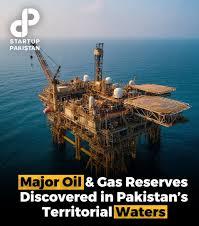Recent climate disasters resulting in losses of $30b to Pakistan’s economy
3 min read
This essay could discuss potential measures and policies that could be implemented to strengthen Pakistan’s infrastructure and economy against the adverse effects of climate change, focusing on sustainable development and disaster preparedness. Recent climate disasters losses $30b Pakistan’s economy these topics aim to delve deeper into the specific aspects of the broader issue of climate disasters and their economic consequences. In recent years, Pakistan has faced a series of devastating climate disasters that have had a profound impact on its economy. The cumulative effect of these events has resulted in staggering losses estimated at $30 billion, a figure that underscores the vulnerability of developing nations to the consequences of global climate change. Recent climate disasters losses $30b Pakistan’s economy the economic ramifications of these disasters are multifaceted and far-reaching. The agricultural sector, which is the backbone of Pakistan’s economy, has been particularly hard-hit. Floods and droughts have led to crop failures, livestock losses, and a significant reduction in agricultural productivity. This not only affects the country’s food security but also the livelihoods of millions of farmers. Infrastructure has also suffered immense damage. Roads, bridges, and communication networks have been destroyed or severely impaired, disrupting trade and transportation. The cost of rebuilding these essential facilities adds to the economic strain, diverting resources from other critical areas of development. The human cost is equally tragic. Lives have been lost, homes destroyed, and communities displaced. The psychological trauma and health crises that follow such events cannot be quantified in monetary terms but contribute significantly to the nation’s economic burden. Moreover, the frequency and intensity of these climate events have been increasing, suggesting a worrying trend that could lead to even greater economic challenges in the future. The situation calls for urgent action, not only from Pakistan’s government but also from the international community. Pakistan’s experience serves as a stark reminder of the inequities of climate change. Despite contributing minimally to global greenhouse gas emissions, it is among the countries most affected by its adverse effects. This disparity raises questions about global responsibility and the need for a united effort to address the challenges posed by climate change. The economic losses also highlight the importance of investing in climate resilience. Developing robust infrastructure, sustainable agricultural practices, and effective disaster management strategies are crucial for mitigating the impact of future climate events In conclusion, the recent climate disasters in Pakistan have not only resulted in significant economic losses but have also exposed the country’s vulnerabilities to the harsh realities of climate change. It is a wake-up call for the world to take decisive action and work collaboratively towards a more resilient and sustainable future. You can read more here.
The cost of inaction is too high, and the time to act is now. This essay is a brief exploration of the profound economic and societal impacts of recent climate disasters in Pakistan. With losses amounting to $30 billion, the events have highlighted the urgent need for climate resilience and global cooperation. As Pakistan rebuilds, the world must take heed and act to prevent such catastrophes in the future.





